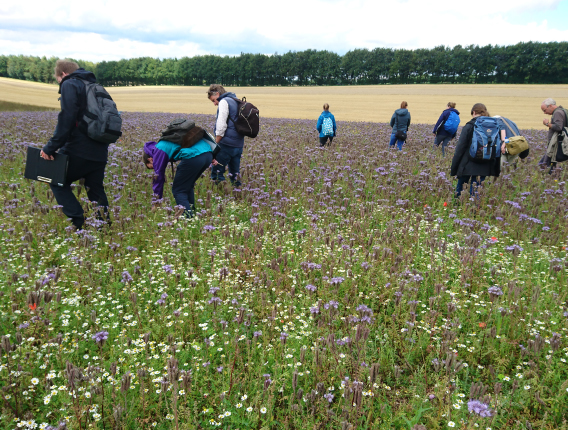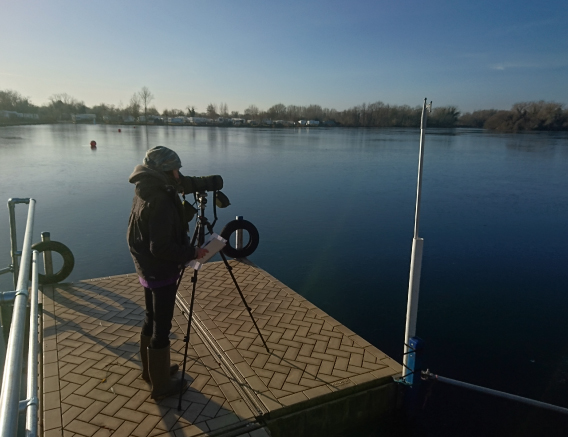

Phase 1 and Botanical Survey
Our team of experienced ecologists are able to undertake all scale of habitat surveys and assessment. We have extensive experience of large scale habitat surveys at landscape level and for a range of major projects such as gas and oil pipelines and strategic housing developments. Our experience includes National Vegetation Classification (NVC), botanical mitigation and translocation, hedgerow regulation surveys and woodland surveys and management plans.
All our surveys utilise GIS software to map habitats, communities and populations of species. These present clear and understandable maps for the client and form an important part of the information provided to the local authority for planning applications.
Protected Species Surveys
Our ecology team have the necessary experience and licenses to undertake a full range of protected species surveys. We have extensive experience of bat surveys including emergent surveys, static surveys, trapping and radio tracking for both more common and rare species of bats.
We also have a proven track record in survey for badgers, reptiles, dormouse, great crested newts, breeding and wintering birds, crayfish, otter and water vole.
Our field data is collected using up to date survey equipment and technology, and collated through GIS software to ensure accuracy and to present data in a clear and professional manner.


Licensing
Members of our team hold personal survey licenses for a range of protected species including bats, great crested newts and dormouse. We have held project licenses for a significant number of bat projects covering a wide range of species such as greater and lesser horseshoe bats and our team includes a registered consultant on Natural England’s Bat Low Impact Class License (BLICL). We also have extensive experience of securing project licenses for badgers and great crested newts.
Ecological Impact Assessment
Ethos have provided advice on all stages of EcIA including preliminary ecological appraisal (PEA), screening opinions, baseline surveys, ecological opportunities and constraints plans and subsequent avoidance, mitigation, compensation and enhancement strategies.
Central to our approach to EcIA is our understanding of relevant policy and legislation which ensures that the advice we are providing is robust and proportional to the scale of impact. We pride ourselves on providing practical and pragmatic solutions balancing the commercial needs of our clients with the relevant policy and legislative requirements.
Habitat Regulations Assessment
Ethos have provided advice on a range of projects where a habitat regulations assessment (HRA) has been required. This has included assessment on the potential impact on sites such as the Severn Estuary, North Somerset and Mendip Bats SAC, Thames Basin Heaths and the Mole Gap to Reigate Escarpment. Ethos has also provided mitigation and compensation strategies to ensure that any effects on the site is avoided and projects are able to proceed.
Ethos also has extensive experience in relation to Suitable Alternative Natural Green Space (SANGS), which form an integral part of the avoidance strategy to mitigate impact on the Thames Basin Heaths. We have undertaken several SANGs projects including ecological survey, SDANG design and the production of management and maintenance plans and cost schedules.
Mitigation & Monitoring
We have the combination of technical knowledge and practical experience to design habitat mitigation schemes for small or large scale development. Our projects have included the design of bespoke bat barns, biodiversity enhancements for large scale projects and mitigation strategies for wind farms.
